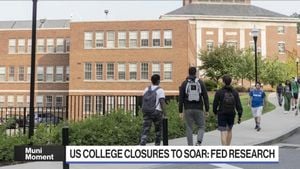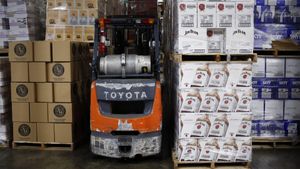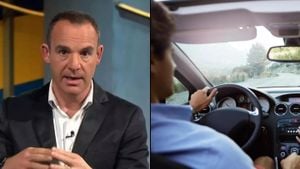With the Delhi Assembly elections on the horizon for 2025, political parties are ramping up their campaign efforts, aiming to capture the attention of voters amid the city's vibrant political battleground. Recently, the Congress party unveiled its first roster of 21 candidates, marking their strategic advance as they prepare for the electoral showdown. This list features notable contenders including Ragini Nayak, who is vying for the Wazirpur seat, and Sandeep Dikshit, who will represent New Delhi. Abhishek Dutt has also been announced as the candidate for Kasturba Nagar, and Devender Yadav, the Delhi Congress chief, will contest from Badli.
The candidates chosen reflect the Congress party's attempt to regain ground lost during the previous elections where they faced significant challenges. Other names making the list include Aruna Kumari from Narela, Mangesh Tyagi from Burari, and veteran politicians like Anil Bhardwaj for Sadar Bazaar, showcasing Congress's intent to mix fresh faces with experienced leaders.
Meanwhile, the Aam Aadmi Party (AAP) is also throwing its hat back in the electoral ring, having released its own list of candidates just days before. AAP has decided to part ways with 17 of its sitting MLAs, greater proof of their desire for change and revitalization within their ranks. AAP leader Arvind Kejriwal even hinted at the party's resolve to remain independent, flatly denying any possibility of collaboration with the Congress party, focusing instead on their last performance during the 2020 Assembly elections where AAP secured 62 of the 70 seats.
The lists produced by both political entities have sparked discussions among party loyalists and citizens alike, contributing to the ever-intense atmosphere leading up to the elections. Voters are closely watching these developments, particularly the shifts within long-standing party lines and the impact on local issues. The candidates are not just names but represent the hopes and ambitions of their respective electorates, making every selection significant.
With the issue of governance, public service delivery, and Delhi's development taking center stage, the new candidates are preparing for what is expected to be a grueling political contest. Each candidate is tasked with addressing the pressing concerns of residents, from infrastructure upgrades to education reforms, as they look to capture the public’s trust.
Further fueling the political tension, Congress held a meeting of its Central Election Committee (CEC) at the AICC headquarters, where influential leaders, including party chief Mallikarjun Kharge and Rahul Gandhi, strategized on their campaign direction. The dynamics of this leadership also play a pivotal role as the party moves forward with the elections rapidly approaching.
Voters are now faced with the task of evaluating their options critically. Will they align with the strategies introduced by established parties, or will they embrace the changes introduced by newer candidates? The choices made over the next few months will not only shape the political progression of Delhi but could also reflect wider trends within Indian politics as the parties gear up for future confrontations.
At the grassroots level, discussions are lively. Residents of constituencies like Wazirpur and New Delhi are actively debating the capabilities and promises of the candidates, with many expressing both hope and skepticism about the potential outcomes. These dialogues are shaping the political narrative leading up to the elections, making public sentiment increasingly important as the candidates ramp up their outreach efforts.
For now, the upcoming Delhi Assembly elections appear to be drawing closer, with candidates from various parties making preparations, sharing visions, and articulately addressing the issues they wish to fight for. The battle for votes may soon be underway, with each party staking its claim not just on promises but also on the legacy they aim to build.
With the momentum growing, both Congress and AAP are set to leave no stone unturned as they engage with the electorate. The roads of Delhi are becoming not only pathways for travel but corridors for political discourse, as every rally and public meeting can sway opinions and potentially alter the outcomes of the upcoming elections.
Let the games begin, as the battle lines for the Delhi Assembly elections of 2025 become clearer every day, with candidates gearing up for what is sure to be another fierce chapter in the city's political saga.



